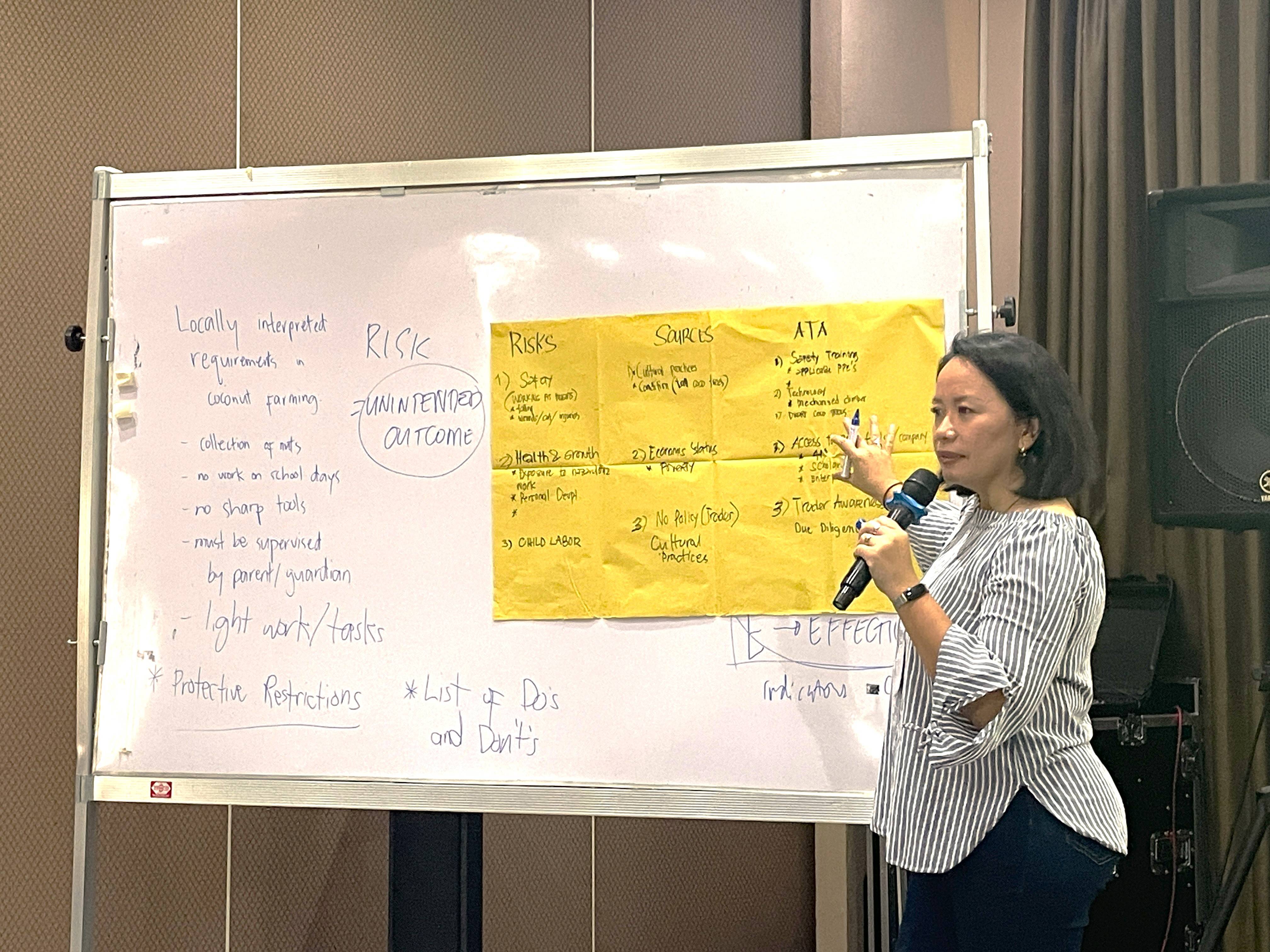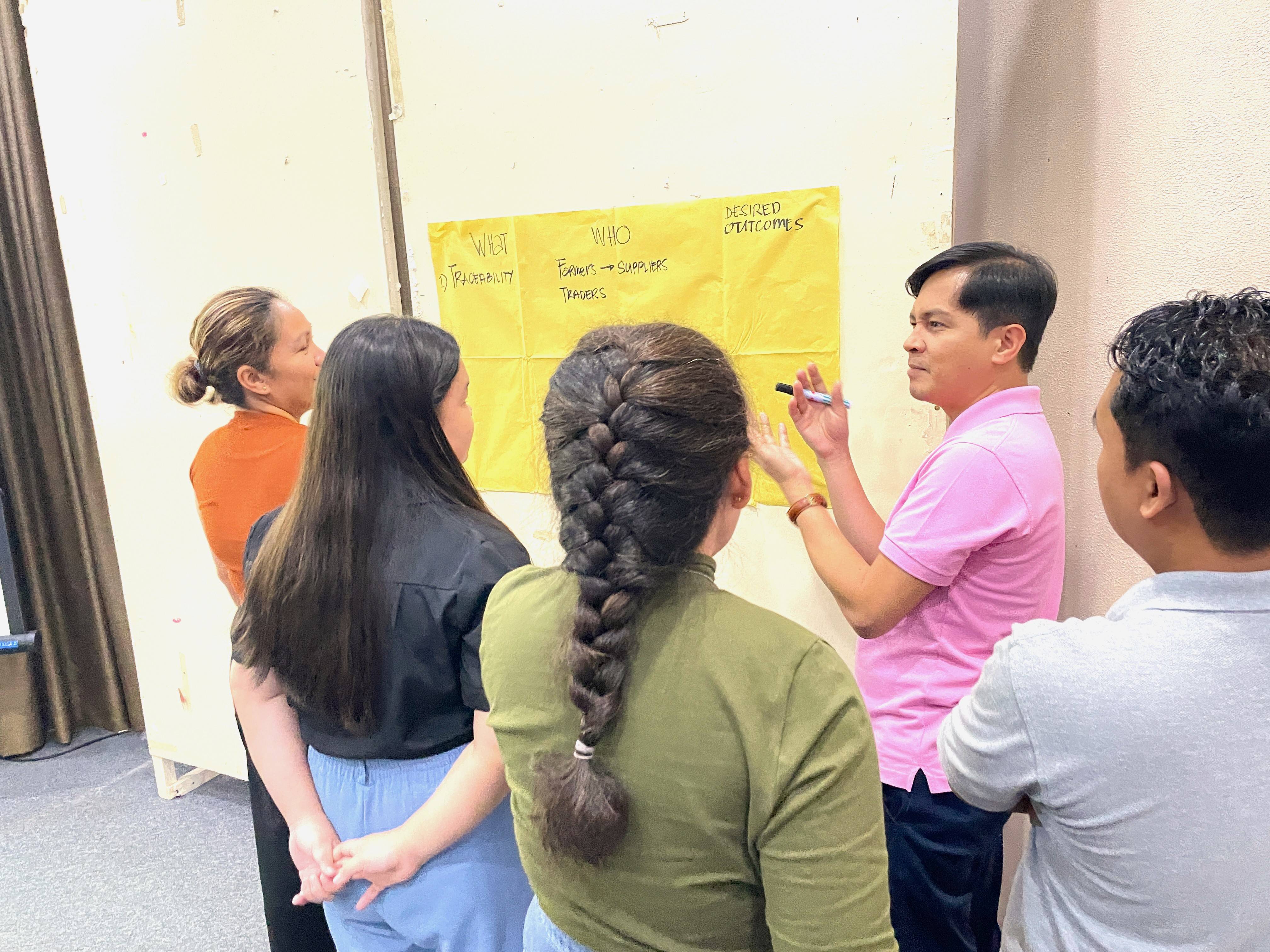Protecting the Rights of Children in the Coconut Oil Supply Chain in the Philippines
The Philippines is the second-largest producer of coconuts in the world, with majority of exports coming from the Mindanao region. Due to the nature of its cultivation and production, coconuts generally come from smallholder farms tilled by farmers and workers doing labour intensive, seasonal, and informal work in the sector.
Dignity in Work for All’s own work in the sector reveals that majority of coconut farming communities in the Philippines are characterized by cyclical and intergenerational poverty, limited social and economic infrastructure, and inadequate law enforcement. In addition, the coconut supply chain is also built on strong and long-standing, if informal, interrelationships among producers (coconut farmers and workers), traders (aggregators and consolidators), and processors (CNO mills). With such an arrangement, CNO millers have very little visibility into farm-level production, since traders are usually the ones who mediate between production and processing.
This lack of visibility, in combination with social and economic challenges, heightens the risk of children getting involved in hazardous work in the coconut sector and engaging in child labour instead of continuing their education.
In order to protect and promote the rights of children, Dignity in Work for all has been actively participating in a consortium composed of private companies, industry associations, non-government organizations and community-based partners aiming to respond to the issue by piloting community-level and company-driven mechanisms to prevent and address child labour in the Philippine coconut oil supply chain. Read more below about the latest update on this first-of-its-kind sectoral approach.

Update on the Coconut Child Labour project
March 2024
In 2021, a project was started to investigate the possible existence of child labour in the coconut supply chain. The cooperation partners are Cargill, Wilmar, Cordaid, The Integrated Rural Development Foundation, Dignity in Work for All, GMACL, MVO and Vernof. RVO supported this project via a subsidy from the Fund against Child Labour (FBK).

During the first phase of the project it was investigated whether child labour was present in the production chain and the conclusion was that child labour may indeed occur in the upstream coconut supply chain.
The next phase focused on preventing and remediating this.
As one of the key actions, a Child Labour Monitoring System (CLMS) was implemented in the identified barangays of Sarangani province and Roxas municipality in Zamboanga Del Norte. By now, a number of consultations and discussions have been organised with the communities and the beneficiaries. Basic ideas about the project were shared, in particular the idea of a CLMS. This included labour inspectors, community leaders and the village council head, school administration and companies' local personnel. They were trained in monitoring and documenting techniques and the planning of the CLMS. In order to have a workable system, a CLMS data collection tool has been developed and training on how to work with the CLMS was performed. Coordination and consultation meetings were also conducted with the Philippine Coconut Authority (PCA) with the presence of provincial and regional managers and staff of PCA. Moreover, Child Friendly Games were organised during a so-called ‘Fiesta’ happening at Dipolog City.
Furthermore, the companies have been assessing their existing supplier management frameworks and Due Diligence processes. Specific attention is paid to the development of child labour due diligence including supplier engagement and a capacity building program for the Philippines and coconut context to achieve more responsible sourcing. Introductory meetings with 1st-tier suppliers for their buy-in to the project were organised, and scoping activities and visits to the farming communities within the project areas to establish community linkages were conducted.
Another action area is looking at how to increase the income of farmers by improving product quality, productivity, and engaging in other sources of livelihood. For this, a baseline assessment on how farming is currently done was performed. This will be compared with an endline study to measure the impact of respective interventions.
During the project, information about the functioning of a CLMS was also shared with other (downstream) supply chain actors. A meeting has been organized zooming in the potential of CLMS and it was explained to the participants. The session was greatly valued.
The project is well on its way. We will inform about further actions at a later stage.
For more information, please contact:
Louisse Borela [email protected]
Dexter Delfin [email protected]